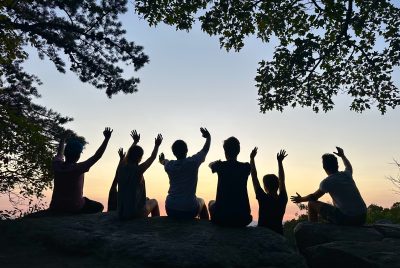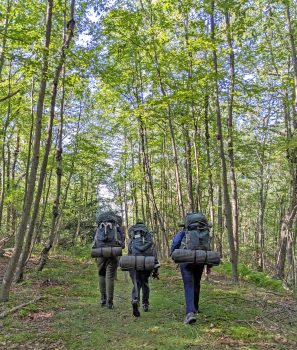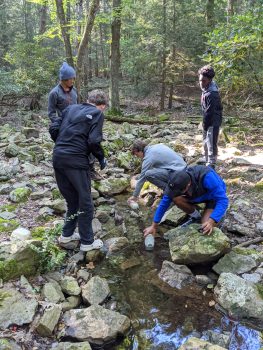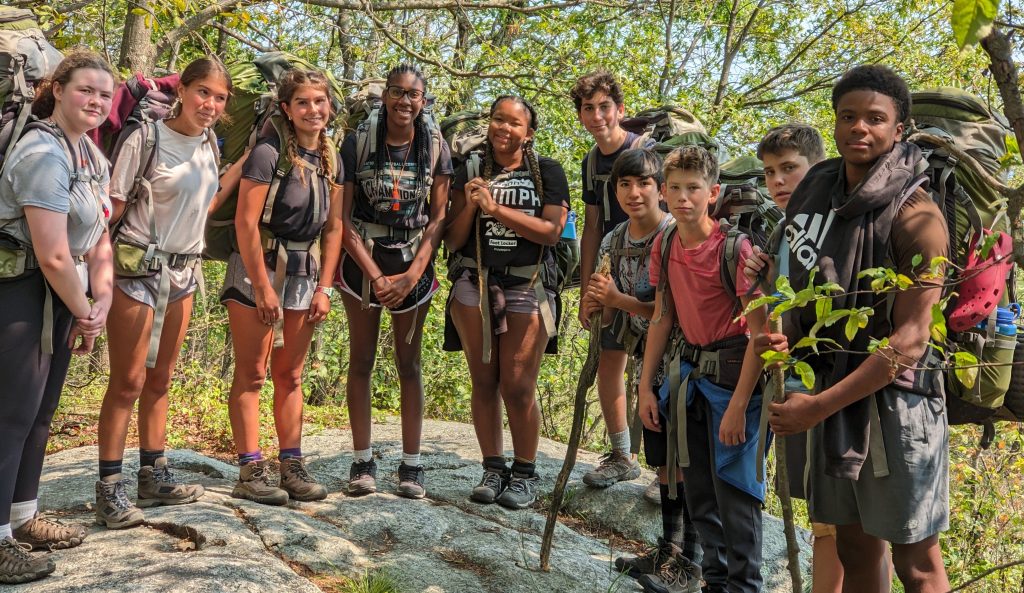Guest Blog Post by Matt Norcini
Matt Norcini is the Head of Upper School at Springside Chestnut Hill (SCH) Academy in Philadelphia and the Chair of the Board of Trustees for the Philadelphia Outward Bound School.
The perennial anticipation of teacher assignments, foraging of school supplies, and frantic last-minute completion of summer assignments are nothing new to the back-to-school season in the United States. This year, however, students’ return to school has been characterized by an additional component: an intensifying debate over the use of cell phones in schools. While educators and parents continue to wrestle with the impact of technology and the pandemic on student learning, Jonathan Haidt’s New York Times Best Selling book, The Anxious Generation: How the Great Rewiring of Childhood Is Causing an Epidemic of Mental Illness, has helped put cell phones and social media in the crosshairs of parents, schools, and state legislatures.

Haidt’s work and methodology, which itself is the subject of much debate, argues that a transition from a “play-based childhood” to a “phone-based childhood” and a trend towards “overparenting in the real world and underprotection in the virtual world” have contributed to the rise of “The Anxious Generation.” Haidt’s book lays out the case that phones have transformed the way young people build relationships, resilience, a sense of self, and purpose in this world.
As a parent and educator, Haidt’s work is alarming. That’s his goal: he wants parents, educators, and legislators to take action. To Haidt, today’s technology and social media companies are to this generation what cigarette companies were to those of the past: corporations using any and all means necessary to build addictive behaviors for the sake of long-term profits.
Perhaps as a result of The Anxious Generation’s continued presence on the bestseller list or just the result of the larger national discussion over children, social media, and cell phones, many schools are discussing new and different ways to limit access to devices during the school day. Millions of dollars are being spent to build cell phone lockers, distraction-limiting holders crafted by companies like Yondr, and cell phone storage made from simple shoe holders, all with the goal of separating children from their phones. All of these promise to remove the distraction and increase the quality of teaching and learning in the classroom. As a principal of a high school that implemented the use of cell phone holders during academic time over a year ago, I can attest to the transformative change of getting phones out of the classroom.
“For many students, experiences like those provided by Outward Bound are the first time they have been away from their cell phones.”
The removal of devices is one piece of the puzzle. Another, for us as parents and educators, is finding ways to facilitate for our children the creation of deep and meaningful connection, the development of self and belonging, and a sense of value and purpose in the world. Tall orders, for sure, but ones that parents and educators agree are critically important to this and any generation.

Enter nature. The immersive, inspiring power of the natural world, argues Haidt, is one way to help children – or any of us, really – break free from phones, make space for the outdoors, and seek to be “awed” by its power to transform us. It can be a simple walk in the woods, or time sitting outside, free from devices, to reflect and connect. In our busy modern lives, we just need to make space for it. Luckily, for teachers and parents wanting more for their students and children, there is an organization that has been “changing lives through challenge and discovery” in the outdoors since the Second World War: Outward Bound.
For nearly a hundred years, Outward Bound schools across the world have helped thousands of people learn more about who they are and what they are capable of. In the words of its founder, Kurt Hahn,
“There is more to us than we know. If we can be made to see it, perhaps for the rest of our lives we will be unwilling to settle for less. There exists within everyone a grand passion, an outlandish thirst for adventure, a desire to live boldly and vividly through the journey of life.”

At SCH Academy, we have partnered with the Philadelphia Outward Bound School for more than a decade to build meaningful, learning experiences for our students. Each year, our ninth grade class spends its first five days of school in the woods: no showers, no toilets, no cabins, and, importantly, no phones. Students spend their five-day expeditions in advisory groups that will be a cornerstone of their high school experience. From morning breakfast and the breakdown of camp to day-ending reflection and conversation around the fire, Outward Bound creates familiarity in unfamiliar environments by providing a knowable, repeatable structure to its participants. This structure facilitates learning that is shared and collaborative and meets students where they are. It helps them engage authentically and directly with one another without the distraction of cell phones. Students work together with the tools they’ve been given to complete the tasks of the day and achieve their goals, and, over the course of five days, the group learns and grows together and their bonds solidify.
Each year, feedback gathered from students attests to the power of learning in the outdoors. In years of collected data, the top response to the question “What did you learn about yourself either on the expedition, or as you reflect on it?” is, by far:
I learned that I am capable of so much more than I thought I was.
And while Outward Bound experiences don’t transform all students into outdoors-loving adults, they do demonstrate the power of connection, challenge, and belonging. For many students, experiences like those provided by Outward Bound are the first time they have been away from their cell phones, screens, and social media since they were toddlers. We owe it to our children to experience an untethering.

In 2023 alone, the Philadelphia Outward Bound School served more than seven thousand students, the vast majority of them from underserved districts in the City of Philadelphia. As an organization dedicated to self-discovery and confidence-building of young people, Outward Bound is one partner for parents and educators in the quest to offer an alternative to, as Haidt calls it, a phone-based childhood.
As a parent of three middle school students and an educator of twenty-four years, I too, worry about our Anxious Generation. But the stories, smiles, and bonds that I see emerge from the woods at the end of our ninth grade expeditions demonstrates that students want play-based lives, as well. It’s our generational responsibility to help them do it.
